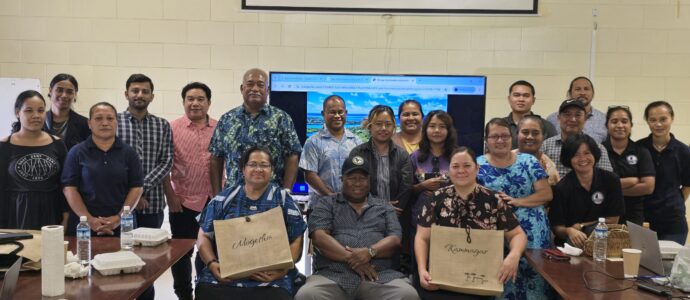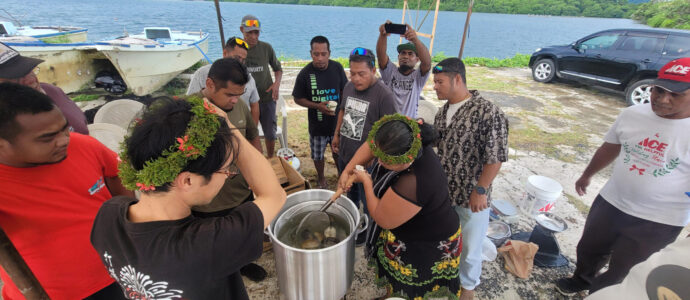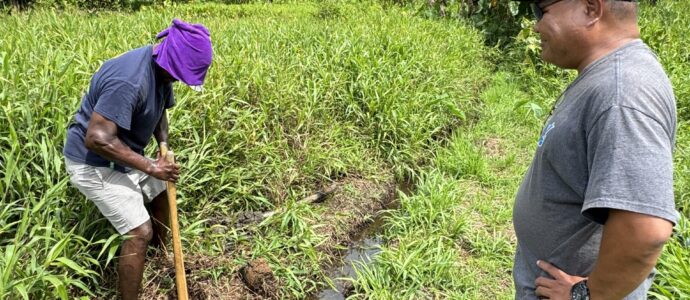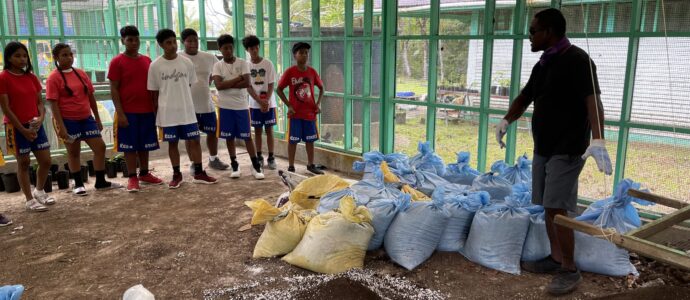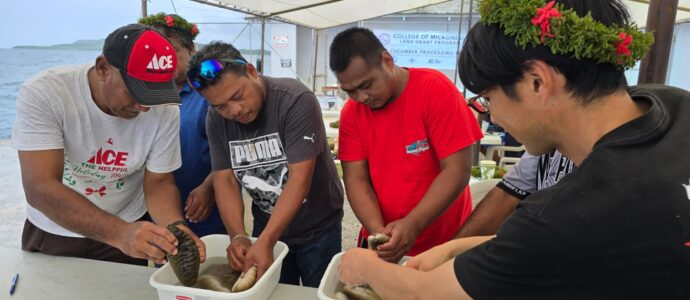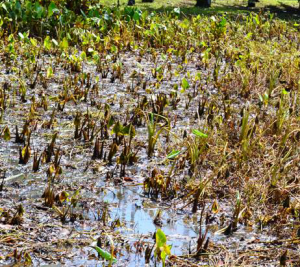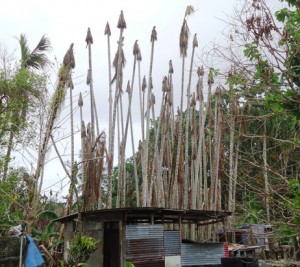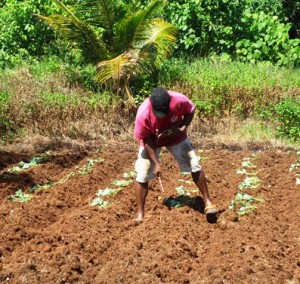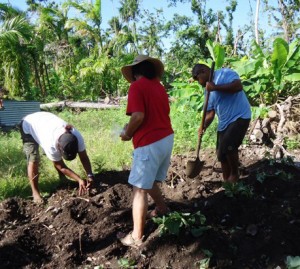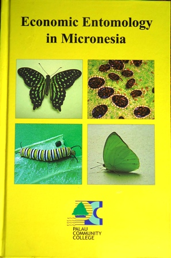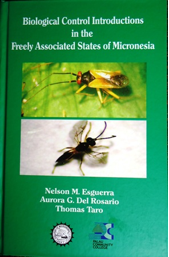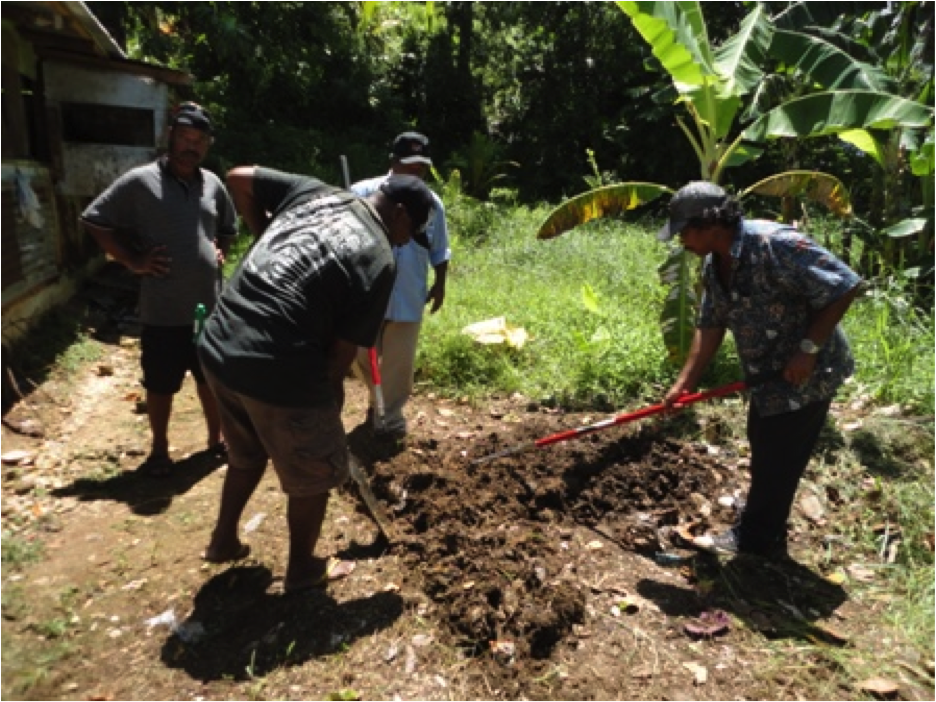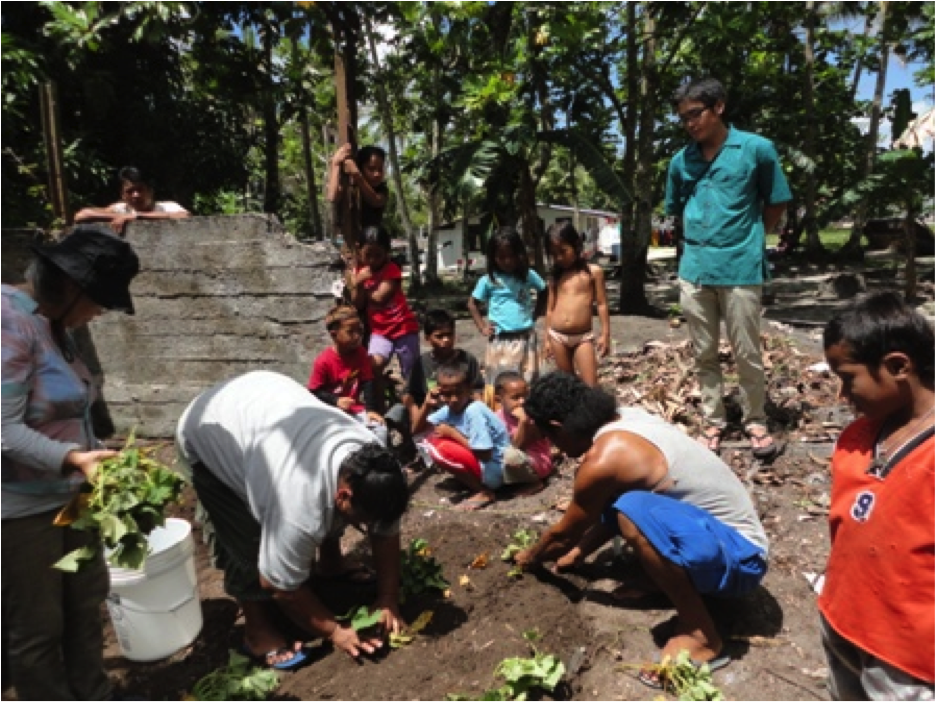KOSRAE, FSM. Dr. Virendra M. Verma, Researcher/Extension Specialist, Kosrae Agricultural Experiment Station.
Dr. Verma, Project Coordinator of Western Sustainable Agriculture Research and Education (WSARE) project on on-farm implementation and demonstration of integrated sustainable agriculture and livestock production systems for small-scale farmers, organized two one-week workshops for participants. Eighty-one participants including agriculture college students, agriculture high school students, farmers and women attended the workshops. Extensive PowerPoint presentations and hands-on activities were organized to make participants acquainted with tissue culture multiplication, acclimatization, banana cultivation, soft taro cultivation, sweet potato cultivation, diseases and nutrient deficiency symptoms and control, insect and pest control, fertilizer and compost application, harvesting, storing and composting. Seven multi-colored cultivation guides on banana, soft taro, sweet potato, eggplant, papaya, composting and swine diet were prepared and distributed to participants.


